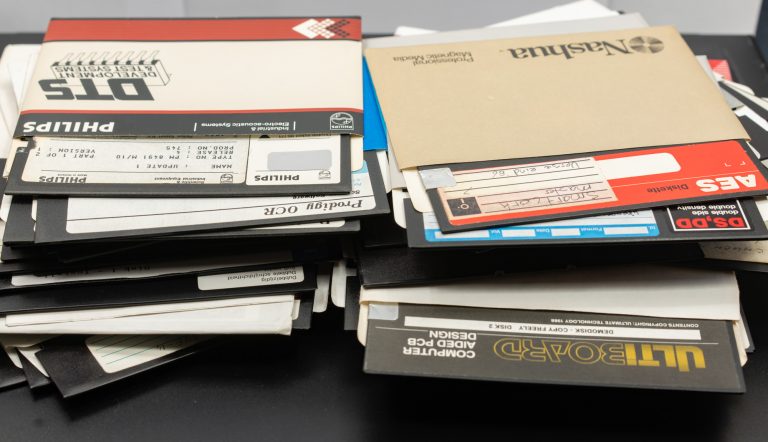Five techniques to help yourself if you forget foreign words in speech

You learn a language, communicate in it at work or study, and constantly catch yourself with some words “flying out” of your head. Moreover, these can be words that are difficult for Russian-speaking comprehension that you have recently learned, or absolutely simple, like boring –boringor software –software.
Often such forgetfulness greatly frustrates the speakers, and self-flagellation begins – “bad memory, age, I can’t do it.” I've put together five simple techniques for those who face similar difficulties, using the example of the English language. Yes, to some they may seem like simplifications, but in practice, if you are faced with such forgetting in stream speech with a foreigner, it is much easier to keep in mind some tools in advance that can be used as an “first aid”. As the Chinese proverb says, “Ready your umbrella before it rains.”
Simple synonyms

Use simple synonyms. For example, you forgot the word exhausted – depletedalthough he was definitely taught and perhaps even remember the first sounds. What to do?
What simple words can replace it? You can check yourself, and then look here – sleepy, tired, out of energy. Yes, these are not exact synonyms, but they can convey the main meaning and will not stop you in an awkward pause.
Or another example. Forgot the word sneakers – sneakers / trainers. Replace with the word – shoesshoes or sports shoes.
And many more words in English come as paired words. For example, salt and pepper – salt and pepper. And if you start the phrase 'I need some salt aaaaand….', pause and draw it out, almost any English speaker will immediately help you and say “Salt and pepper”. This will already be such an indirect request for help.
You can also ask for 'pen and…. 'paper', for example.
NOT + anonymous

Let's say you forgot the word ugly. We take its antonym – beautiful – beautiful and add it in front NOT.
That car is NOT beautiful. This car is not beautiful. They just “got around” their gap in speech.
This technique works especially well with adjectives.
This house is expensive – This house is expensive. Forgot the word expensive. We take cheap – cheap. This house is not cheap.
That company is young – That company is not old.
Bonus to this technique: softening harsh expressions. Especially useful in work situations. Let's say you originally wanted to say:
The manager's instructions are confusing – The manager's instructions are confusing.
But confusing slipped your mind, and you politely replaced them with not clear.
The manager's instructions are not clear – which sounds more restrained, instead of confusing, which can be perceived as a reproach.
Generalization

This is when, instead of using specific terms, you name the class of objects itself or the general idea. For example, tool is an instrument, instead of the forgotten hammer – a hammer.
Or container instead of bottle or jar.
Or clothing instead of shirt or coat.
How would you generalize chair/sofa? Furniture. Tablet? Device. Piano or Violin? Musical instrument.
Yes, this is a compromise option. But, as they say, in learning languages, “It is better to speak poorly than to be perfectly silent.”
Generalization + for

Let's say you were walking and forgot the word “Bakery”. What is a bakery? Shop – shop. What's the store for? For (buying) bread.
That’s what we say: shop for bread – as simple and clear as possible.
Excuse me, where is the shop for bread? Excuse me, where is the store for bread?
And 99% of the time people will understand what you are looking for.
Or you need a doctor.
Paediatrician – doctor for children.
Gynecologist – doctor for women
Cardiologist – doctor for hearts
It is important here: if you use FOR + verb, then add to the verb ing:
A thing for connecting papers – A STAPLER // A stapler is a thing for joining sheets. (if you are in an office supply store).
Description

Forgot the word – described it through its property. For example, Mirror – mirror – it's an oval object that you look in. It's in the bathroom or bedroom.
Below is an example of characteristics by group (shape – shape, size – size, texture – texture, material – material).

And in order to be prepared for the fact that you will have to describe something, you can even play a game with yourself – you walk around and describe objects around you. The more objects in the field of view described, the better.
An important addition: learning languages can be looked at in different ways. Personally, I always put speaking first. The fact that you forget words does not mean that your brain does not work well, that you are a stupid person or that you will never be able to speak a language.
Don't let these toxic thoughts poison your learning.
Forgetting something is a normal part of learning a skill. This doesn’t mean that you won’t look it up in the dictionary later and learn the word. From experience, such suddenly “forgotten” words are then etched into memory for life.
But what can really seriously hinder you is to reproach yourself, get upset over mistakes and fall into negativity. In learning, and even more so in self-study, you need to be as caring as possible with yourself, because… being patient and sensitive to yourself directly impacts your motivation. Demanding, but caring.
In the channel I describe various cases in learning English from practice, including we discuss the decline in motivation from the point of view of brain function. Stop by for a visit.
***
And if you are learning English, let's play a little?)
I’ll give you a few words, and you think about how you could “bypass” them in your speech as simply as possible if you forgot. For example: scissors – it's a thing for cutting paper // scissors are a thing for cutting paper.
How would you describe:
market / basket / rug / heavy / organized
And thanks for reading!





